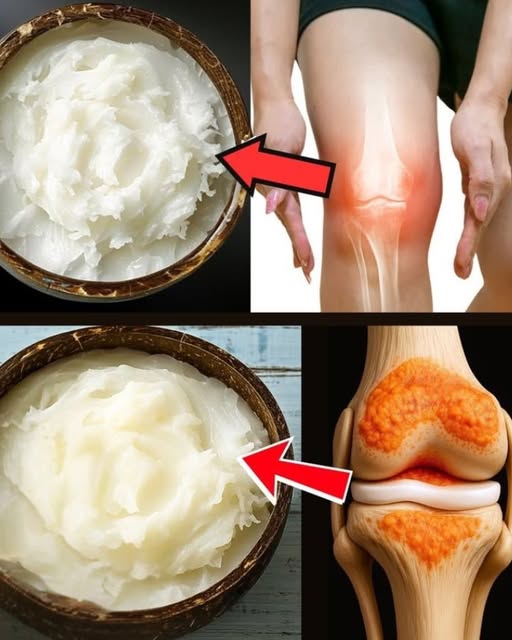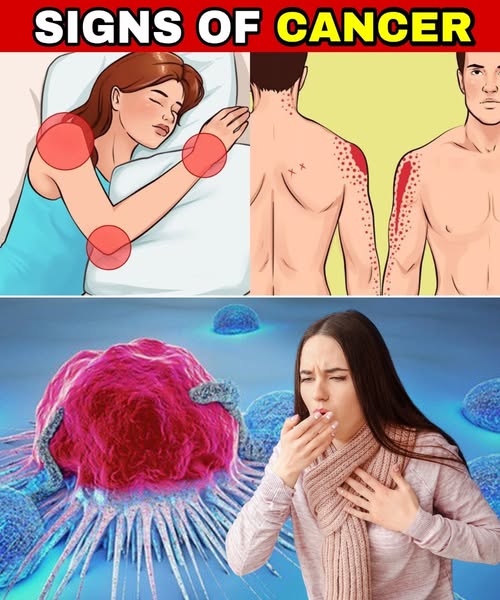Introduction

Knee pain can be debilitating. Whether you’re an athlete, a busy professional, or someone managing aging joints, damaged knee cartilage often feels like a one-way street to chronic pain and limited mobility. But what if you could rebuild your knee cartilage naturally – and fast – simply by changing what’s on your plate?
If you’re tired of relying on painkillers, costly injections, or surgery as your only options, this is for you.
This comprehensive guide will reveal 7 incredibly effective foods scientifically linked to cartilage regeneration and joint health. We’ll also bust common myths, answer burning questions, and give you an actionable plan you can start today.
Bonus Promise: By the end of this article, you’ll know exactly what to eat to start healing your knees naturally – faster than you thought possible.
Why Focus on Food? The Power of Nutrition in Cartilage Regeneration
Cartilage is the smooth, rubbery tissue cushioning your joints. Unlike bone, it doesn’t have its own blood supply, making healing notoriously slow.
That’s why doctors often say “cartilage can’t heal on its own.”
But recent studies show nutrition can directly support cartilage repair by:
✅ Providing building blocks (collagen, amino acids)
✅ Reducing inflammation
✅ Stimulating the production of new cartilage cells
For example, a 2019 study published in Nutrients found that certain bioactive compounds in food significantly reduce cartilage degradation in osteoarthritis. Another review in Arthritis Research & Therapy concluded that diet has “an underappreciated but powerful role” in joint preservation.
In other words: What you eat can literally help rebuild your knees.
7 Incredibly Powerful Foods to Rebuild Knee Cartilage Fast
Let’s get to the heart of it. Here are 7 evidence-based foods to add to your diet now for maximum cartilage repair.
1️⃣ Bone Broth – Liquid Gold for Cartilage
Bone broth is rich in:
- Collagen – the main structural protein in cartilage
- Gelatin – supports joint lubrication
- Glycosaminoglycans – key for cartilage elasticity
✅ Study Insight: Collagen supplementation has been shown to reduce knee pain by up to 38% in athletes with joint issues (Current Medical Research and Opinion, 2008).
Action Tip: Drink 1 cup of homemade or high-quality store-bought bone broth daily.
2️⃣ Fatty Fish – The Omega-3 Inflammation Killer
Inflammation accelerates cartilage breakdown. Fatty fish like salmon, sardines, and mackerel deliver:
- Omega-3 fatty acids (EPA and DHA)
- Proven reduction in inflammatory markers
- Potential to slow cartilage loss
✅ Statistic: Omega-3s can lower levels of cartilage-degrading enzymes by up to 50% in animal models (Journal of Nutrition, 2015).
Action Tip: Aim for 2–3 servings of fatty fish weekly.
3️⃣ Dark Leafy Greens – Nature’s Anti-Inflammatory Pharmacy
Think spinach, kale, and Swiss chard. These greens are:
- Packed with Vitamin K, essential for bone and cartilage metabolism
- Loaded with antioxidants that fight joint inflammation
✅ FAQ Answered:
Q: Can vitamin K really help joints?
A: Yes! A 2013 study in Arthritis Care & Research found people with low vitamin K had significantly higher cartilage damage.
Action Tip: Include at least one cup of dark leafy greens daily.
4️⃣ Berries – Tiny, Potent Inflammation Fighters
Strawberries, blueberries, and raspberries are loaded with:
- Anthocyanins – powerful antioxidants
- Natural anti-inflammatory compounds
✅ Research Highlight: Daily berry intake can reduce inflammatory markers by 25–30% (Journal of Nutrition, 2014).
Action Tip: Eat ½–1 cup of berries daily. Fresh or frozen works!
5️⃣ Turmeric – The Golden Anti-Inflammatory
Turmeric contains curcumin, one of the most studied natural anti-inflammatories.
- Reduces pain comparable to ibuprofen in some studies
- May protect cartilage cells from inflammation-driven destruction
✅ FAQ Answered:
Q: How much turmeric do I need?
A: 500–1000 mg of curcumin extract daily is commonly used in studies, but adding 1–2 tsp of turmeric powder with black pepper also helps.
Action Tip: Add turmeric to soups, teas, or smoothies daily.
6️⃣ Nuts and Seeds – Plant-Based Powerhouses
Almonds, walnuts, chia, and flaxseeds provide:
- Omega-3 ALA (plant form)
- Magnesium for muscle and joint relaxation
- Protein for cartilage repair
✅ Study Insight: Diets high in nuts and seeds reduce overall inflammation by up to 35% (American Journal of Clinical Nutrition, 2016).
Action Tip: Eat a small handful of nuts or 1 tbsp of seeds daily.
7️⃣ Citrus Fruits – Collagen-Boosting Vitamin C
Oranges, lemons, and grapefruits deliver:
- Vitamin C – vital for collagen synthesis
- Antioxidants to reduce joint damage
✅ FAQ Answered:
Q: Is Vitamin C really that important for cartilage?
A: Yes! Without it, your body can’t produce or repair collagen effectively.
Action Tip: Include at least one serving of citrus fruit daily.
Frequently Asked Questions (FAQs) – Get the Facts
Can Food Really Rebuild Cartilage?
Answer: While food alone can’t magically “regrow” cartilage overnight, it provides essential nutrients and anti-inflammatory compounds that support repair and slow further damage. Studies consistently show diet changes can improve joint pain and function.
How Long Does It Take to See Results?
Answer: Some people notice reduced pain and stiffness within weeks, especially when combining diet with exercise and weight management. True cartilage regeneration is slow – think months, not days – but nutrition accelerates healing.
Do I Still Need Medical Treatment?
Answer: Always talk to your doctor. Nutrition supports medical care, but severe damage may still need injections or surgery. Think of food as a powerful, essential foundation for any treatment plan.
Should I Avoid Certain Foods?
Answer: Yes. To protect cartilage:
- Limit processed foods high in sugar and trans fats
- Avoid excessive alcohol and red meat linked to inflammation
- Minimize refined carbs that spike inflammatory responses
What About Supplements?
Answer: Quality supplements can help, especially:
- Collagen peptides
- Curcumin extract
- Omega-3 fish oil
But whole foods should be your first strategy.
An Actionable 5-Day Meal Plan Example
Here’s how you can put this into practice immediately:
| Day | Breakfast | Lunch | Dinner | Snacks |
|---|---|---|---|---|
| 1 | Greek yogurt + berries | Grilled salmon + greens | Chicken stew with turmeric | Handful of walnuts |
| 2 | Turmeric smoothie | Sardine salad + citrus | Lentil soup with greens | Apple slices + almonds |
| 3 | Oatmeal + chia seeds | Bone broth-based soup | Baked mackerel + spinach | Orange slices |
| 4 | Scrambled eggs + kale | Tuna wrap with leafy greens | Chicken curry with turmeric | Berries + pumpkin seeds |
| 5 | Citrus smoothie | Salmon bowl with quinoa | Bone broth risotto | Carrot sticks + hummus |
Pro Tip: Batch-cook bone broth and freeze for easy use!
Real Success Story: Maria’s Knee Transformation
Maria, 52, struggled with daily knee pain for years. After her doctor suggested surgery, she decided to overhaul her diet first. She focused on these 7 foods, cut out processed junk, and added gentle strength training.
✅ Results after 3 months:
- 70% reduction in pain
- Walked 5 miles without stopping
- Cancelled surgery consultation
Her words: “I didn’t believe food could fix this. But I’m living proof it can.”
The Cost of Ignoring This Advice
If you keep eating the standard inflammatory diet, expect:
❌ More pain
❌ Faster cartilage loss
❌ Higher risk of surgery
But change what you eat – and you might avoid years of suffering.
Conclusion – Take Control of Your Knee Health Today
Your knees can heal – if you feed them right.
These 7 foods aren’t just delicious; they’re your personal toolkit for rebuilding cartilage, cutting inflammation, and reclaiming your active life.
💥 Don’t wait. Every meal is a chance to repair – or damage – your knees.
If you want to move freely, skip the painkillers, and live life on your terms, start today:
✅ Stock up on these healing foods.
✅ Cut inflammatory junk.
✅ Make small daily changes.
Your knees will thank you.


